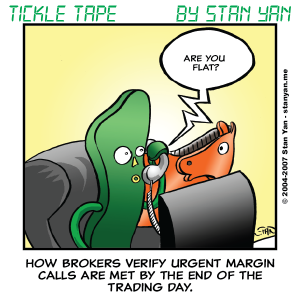In Mitch Albom’s “The Five People You Meet In Heaven,” the main character, Eddie, spent his life as a maintenance worker at a seaside amusement park repairing the rides, and ensuring they ran reliably. He felt trapped, however, believing that he should have left long ago and done something more significant with his life. When he arrived in heaven, he tried to make sense of it all. In the end, Eddie saw that his job at the amusement park was extremely meaningful.
He kept people safe on the rides and that’s an important contribution. Our happiness depends on whether or not we find our lives meaningful, or at the very least, inherently rewarding. We must do something significant with our lives. It doesn’t necessarily have to be significant like the leader of a country or an inspirational guru, but in our own way, we must make some sort of contribution. We must believe that we have our own place in the world and that it is important. Over the years, many traders have said that they just don’t feel as if they are making a significant contribution.
We’ve heard it from traders who trade from their home office, traders on the floor of the CME, to hedge fund managers. This isn’t an issue that should be taken lightly. If you feel that you aren’t making a contribution, you’ll eventually question why you bother trading. And when you start asking that question, you’ll lose your competitive edge. You’ll feel like giving up. It is vital for your long-term survival that you see trading as inherently rewarding and personally meaningful.
Money isn’t everything. It’s the process that matters, not the prize. It is much more satisfying to pursue objectives for the pure joy of pursuing them, regardless of how much money you can make. Winning traders are motivated by the inherent rewards of trading rather than profits. It’s common to hear traders say, “I love trading so much that I would do it for free if I had to.” They find trading personally meaningful.
The markets fascinate them. Market action is intrinsically interesting. It is a rewarding intellectual challenge to devise innovative new trading strategies, and seeing how well your ideas pan out is exciting and enjoyable, regardless of whether you win or lose. Viewing trading from this perspective can act as powerful motivators. Individuals who pursue trading in this way are more likely to feel satisfied and can more easily manage the extreme stress the market is infamous for producing. When you aren’t focused on the profits, it’s easier to stay calm and focused.
The money is either secondary or not an issue at all. Successful traders love the challenges the markets offer and view their work as meaningful. But many novice traders focus on competing with others, beating them out of profits, and winning bragging rights. Such an approach may satisfy a trader initially, but over time, it’s unlikely to be sufficient. Pursuing trading as a passion is a healthier, more satisfying way to approach trading. It’s more useful to focus on pursuing goals that are intrinsically interesting and personally meaningful.
Although trading is inherently rewarding, it can also be hard work. And that’s why it is necessary that you feel your life overall has meaning. You must determine how trading fits into your life. Is it your primary means of fulfilment or just a way to make money? It is difficult to view trading as your primary means of fulfilment. For most people, it isn’t important enough.
Many traders find it necessary to make additional societal contributions by donating some of their profits to charity. Regardless of how you do it, it is important to make sure that trading gives your life meaning, either directly by allowing you to provide for your family, or indirectly by giving you the opportunity to donate money to charity. Don’t underestimate the need for meaning. Trading can be tedious over the long term, and unless you find it inherently interesting and meaningful, you’ll eventually burn out, and never achieve lasting success.


